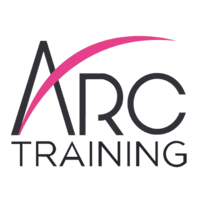
This role has a low level of AI exposure. Core skills such as adaptability, social intelligence, and complex physical tasks remain beyond the capabilities of current AI.
Explore all careersA Support Worker aids individuals and families facing difficulties by providing practical and emotional assistance in various settings.
Get qualified to work as a Support Worker with a course recognised across Australia. Speak to a training provider to learn more.
































































































In Australia, a full time support worker generally earns $1,325 per week ($68,900 annual salary) before tax. This is a median figure for full-time employees and should be considered a guide only. As you gain more experience you can expect a potentially higher salary than people who are new to the industry.
 Courses.com.au Team
Courses.com.au Team
After a small dip, there were approximately 65,600 welfare support workers in Australia as of May 2019. That number is expected to grow to approximately 80,500 by May 2024. From 2018-2023 there is expected to be 30,000 job openings.
Source: The Labour Market Information Portal - 2019 Occupational Projections and Australian Government Job Outlook
 Courses.com.au Team
Courses.com.au Team
In many cases, you will need qualification in a field such as community services or a similar area of support to pursue a support worker job. The exact level of qualification required can change from role to role. A Certificate II of Community Services and Certificate III of Community Services can take anywhere from 12-24 months each depending on if you study on campus or online and if you study full or part time. Many positions often require you to obtain a working with children check, first aid certificate and national police check.
 Courses.com.au Team
Courses.com.au Team
Browse occupations related to Support Worker



For those looking to embark on a rewarding career in the support worker field, the Support Worker courses in Blue Mountains provide an excellent foundation. With 22 courses available, ranging from beginner to advanced levels, learners can acquire vital skills and knowledge to assist individuals in need of care. Popular beginner options include the Certificate III in Individual Support (Ageing and Disability) and the Certificate III in Individual Support, both designed for those with no prior experience.
Experienced learners can take advantage of opportunities to enhance their qualifications through advanced Support Worker courses in Blue Mountains. For instance, the Certificate IV in Ageing Support and the Dual Certificate IV in Alcohol and Other Drugs & Certificate IV in Mental Health are particularly sought after by those keen to expand their expertise in the field. These qualifications can lead to better job prospects and increased responsibilities within the sector.
In addition to the structured courses, there are also short training options that provide specific skills quickly. Courses like the Provide Basic Emergency Life Support and the Course in Supporting People With Disability To Use Medications are valuable for professionals aiming to refine their caregiving capabilities. Those interested can explore various Community Services courses to find additional pathways for personal and professional development in the support worker field.
The Blue Mountains region offers a unique environment for support worker training, with its close-knit community and growing demand for qualified professionals in community services and counselling. By enrolling in the various Support Worker courses in Blue Mountains, individuals can gain the necessary qualifications to make a genuine impact in their communities. From gaining beginner knowledge to advancing through higher education qualifications, a rewarding career in support work is just a course away.